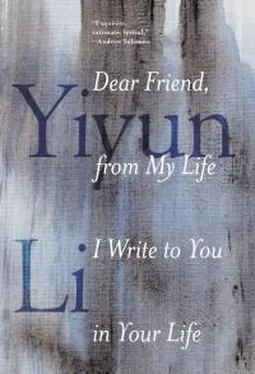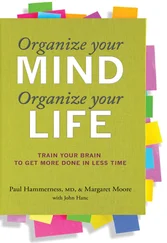To exist as fully as the world expects one to, yet to remain absent inwardly: not equipped with words to articulate the secret I nevertheless understood it at a formative age.
When I left the auditorium, I wondered when and where and how I had gone astray from that intuition. Why are we told to seek out people? In forming attachments, does one become more than oneself, or does one lose an essential means of preserving oneself? The danger of forming an attachment—to a person, to a place, to a profession, to a cause, even to one’s own life—is that one can trick oneself into believing that an attachment has a reason, and worse, that the reason can be mistaken as a right.
—
WE GATHERED AT the dock, where we were to board a boat —Moon River, the boat I had seen the evening before—to the barracks at Cootehall, where McGahern grew up. His sister said farewell to us. Is she not going? I asked, and someone said that she had joined the excursion the first year of the festival, and it had proved too traumatic an experience after not having seen the barracks for decades.
The Shannon widened as we went westward. Across the river there was a beer garden; drinkers waved and their waves were returned. A small boat sped past us, pulling a young man on water skis, but before we had time to appreciate his skill, he lost his balance. His companions went on obliviously, and the young man laughed, bobbing up and down in the water. Farther downriver, on both banks there were brand-new houses that had been left unfinished, or, if finished, unoccupied. All over Ireland it was a sad sight, these mansions deserted. Sadder still was to see horses—status animals during the boom years—abandoned, skinny, roaming in the wilderness.
At Cootehall, and later, on the walk to Henry’s Bar—places that appeared in McGahern’s memoir—people came and talked with me. They pointed out the lanes, the buttercups blossoming in the evening sun; and at a cemetery, the graves of those said to be characters in McGahern’s novels, including two of my favorites, Amongst Women and By the Lake. Many of the festival participants had known him in person; others had been his readers for years. An old woman who had traveled from England said that her father had grown up not far from Cootehall. A man told me about two locals arguing who between them was the real person behind a character. When he asked me if I ever put people I knew into my books I shook my head. Never, never, never, I said with a fake shudder, and he laughed.
Why write autobiographically? There must be a belief in some kind of freedom. For Gorky, the freedom seems to come from his ability to judge the world according to a system in which he holds a strong belief: right and wrong, good and bad, future and past, all presented in unmistakable contrast. For McGahern, who judges neither others (including his father) nor himself, what is the freedom? Though freedom, like originality, is curious only as a universal fantasy. How people endure the lack of freedom is more interesting to me than their pursuit of it. Besides, those who clamor for freedom, like those who pose for originality, can be rather predictable, too.
But for those who wish to erase their selves by writing: Why write at all? I was working on a novel, the writing of it so intertwined with the rapid unraveling that I had started to view the book—in which a murder, halfheartedly intended, takes place—as a haphazard murderer of many good things in my life. But that, I knew too well, was to find an excuse for a dilemma that I wasn’t able to sort out. When I gave up science I had a blind confidence that in writing I could will myself into a nonentity. I had for a few years relished that status, living among the characters who did not know my existence. But how does one remain forever an emotional hanger-on when one wants the characters to live, if not better, or more honestly, or more wisely, at least more fully? Uncharitably one writes in order to stop oneself from feeling too much; uncharitably one writes to become closer to that feeling self.
It was crowded in Henry’s Bar. Friends and acquaintances greeted one another. Drinks were passed over shoulders. After a while, when everyone was settled, people took the stage and read from McGahern’s memoir, some from the book, others having memorized the text. The readers followed one after the other, and then, ever so naturally and without an introduction, McGahern’s voice came in:
In another week Mother came home. She was well and happy and went straight back to school. With her each morning we went up the cinder footpath to the little iron gate, past Brady’s house and pool and the house where the old Mahon brothers lived, past the deep, dark quarry and across the railway bridge and up the hill by Mahon’s shop to the school, and returned the same way in the evening. I am sure it is from those days that I take the belief that the best of life is life lived quietly, where nothing happens but our calm journey through the day, where change is imperceptible and the precious life is everything.
I must have been one of the few to have encountered that voice for the first time. The passage, which I had underlined many times in McGahern’s memoir, is an epiphany that only the most confident dreamers dare to claim. Did I envy McGahern? At that moment, yes, because I wanted to trust his words, yet I knew I did not. I, too, could feign such truth: I had often glided through life with deceiving tranquility; I had the confidence to put up a seeming as my being. That confidence, however, is the void replacing I. The moment that I enters my narrative my confidence crumbles. Can one live without what one cannot have—the absence of I, and the closeness to people that makes that absence impossible?
—
THE NEXT DAY an Irish writer showed me around the countryside. We drove past an IRA memorial, and half a mile farther an old couple making turf—with the good weather, she said, they would have a productive day. In a castle hotel we visited the McGahern Library. A golden plaque had been dedicated by the former Irish prime minister Bertie Ahern, and his name was defaced. Unhappiness about his role in the collapse of the Irish economy, it was explained, which reminded me of a teacher in middle school who had been disliked for her tireless preaching in the Theory of Communism class, and someone had carved her name on an ancient pavilion pillar in the Old Summer Palace adjacent to campus, a vandalism that led to a police investigation. When the news spread we all went to visit the pavilion during lunch break. In every protester there is a heart capable of gleeful childishness.
We drove to see McGahern’s grave, where he is buried next to his mother near a small white chapel. Behind his and his mother’s stones there was a gate, which led to a shaded path and beyond, a handsome-looking house, half-hidden among well-groomed trees. I wondered if it was part of the church, and my guide said she thought not. Then it came back to me. When McGahern’s mother died, his father drew a plan for the plot himself, though with a mistake it blocked a path from the family house of the Dolans, who had donated the land to the church and had the privilege to come through their private path rather than through the congregation’s gates. Legal issues arose; the Dolans had to be appeased.
I remember an old uncle of theirs vividly, Charlie Dolan, who had spent years in America and was fond of fishing. Most days in summer he passed our house in Corramahon on his way to and from Garradice. Whenever he caught a big fish he hung it from the handlebars of the bicycle even though the tail trailed in the dust and the body of the fish slapped awkwardly against his knee as he cycled along….It was a childish world. People knew his weakness…and Charlie was stopped at every turn of the road. The huge fish was admired in wonderment: it must have taken a near miracle to get such a monster up on the shore, and Charlie never failed to rise to the bait. This need for recognition and glory must have its roots in human loneliness.
Читать дальше












